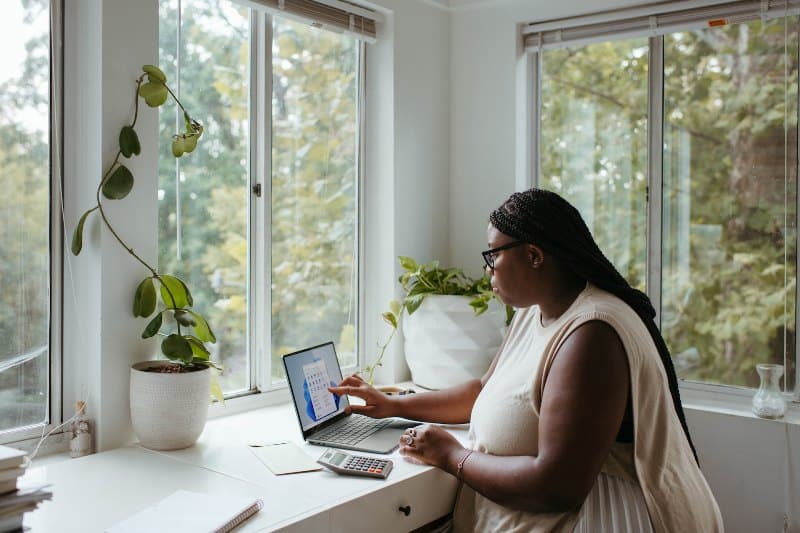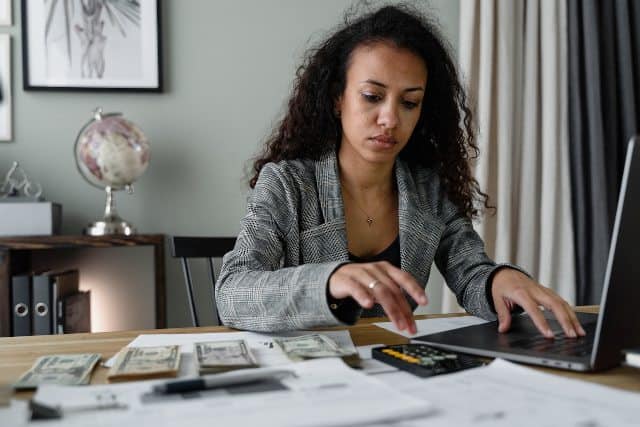When Should You Start an Emergency Fund? (Essential Guide and Deadlines)
Did you know that about half of Americans can’t afford a $1,000 emergency? That estimate is significantly getting steeper by the start of year 2024. And without this crucial fund in place you’ll be digging into your savings, investments, or fall on others for help; or a bailout loan.
The emergency fund account has been treated as a fall-back plan for years – if not centuries. This is a personal financial reserve for financial emergencies. When should you start an emergency fund? This is a popular question for beginners who may not have a well setup personal finance plan. You may feel the need to have this contingency fund in place because you care about your tomorrow.
The best time to start an emergency fund is right now. Because you do not know exactly when your next financial crisis may hit. A good cash reserve of 3 to 6 months of living expenses would do. A beginner emergency fund could be saving your first $1000 as quickly as possible. And finally, people like you also ask, ‘should I build an emergency fund before investing?’, the simple answer is a big YES. On the other hand, this rule is subject to an individual’s unique circumstance.
2 Important Things to Consider Before Building an Emergency Fund

There are a number of things to consider before plunging into any lifelong commitment. One of them is your money. As important as an emergency fund is, there’s the need to get a few ducks in a row before diving in – for best results. These include:
Step 1: Your Personal Financial Plan

Before a builder begins his craftsmanship he lays out his plans. Can you imagine what cities and skylines would look like without plans?
There wouldn’t be structural integrity. Aesthetics would also be thrown out of the window; this is same with creating an emergency fund.
So when should you start an emergency fund? It is when you have your personal financial plan in place.
Your contingency plan is a fall back plan in times of money problems. But prepare a financial plan as a tier-1 strategy before you determine future unforeseen financial emergencies.
Your financial plan need not be sophisticated or perfect. A single page printable planner would do. Perhaps a spreadsheet equivalent or easy to use app with flexibility.
a) Your Personal Financial Identity
Your financial plan could begin with a series of questions: Who am I? Why do I want financial freedom or why do I need financial empowerment. (Answer this briefly and simply – straight to the point. You can always come back and edit or update it (don’t worry about accuracy either).
b) Your Current Financial Situation
Where am I right now in my finances? Am I in debt? What is my debt level? What is my net worth? And how did I get here? When should you start an emergency fund? After clarifying a few of these things. Treat it like a game.
c) Important Numbers and Dates
At what age do I want to retire? Do I desire early retirement? How much money would I want in retirement? (I’m not sure about amounts? I just want to be able to live off passive income without ever working again 10 years from now – or sooner)
Step 2: Your Personal Budget Allocation

An emergency fund requires a good financial plan as a firm foundation. The fund works best when you’re working towards a specific goal. The entire process or journey would require focus and fortitude.
Having a budget allocation ensures that you can actually find the cash to build your emergency or contingency fund. Exactly when should you start an emergency fund with a limited budget? A typical budget, like the 50-30-20 budgeting rule or method (we love) works.
50% of your after-tax income goes to your needs, then 30% goes to wants; Allocate 20% to savings. Your emergency fund will be funded using a healthy portion of the latter (savings).
If your money is a mess to begin with, you’d have to fix up your life first. Here’s how to amend your dreadful previous money habits.
a) Start Living Within Your Means
This should have read ‘live below your means.’ But you’re off to a great start if you can get a few basics right. You’d have to force yourself with a pigeonhole intention.
Make it a fun game to allocate 50% of income to essential needs only. Cut out all non-essential entertainment, eating out, subscriptions, unnecessary payments, and lifestyle creep expenditure.
when should you start an emergency fund? You can begin while you’re trimming your lifestyle to accommodate the new financial empowerment mindset you’ve acquired through frugality.
b) Start Paying Down Your Debts
Start paying down your debts immediately. If you created the mess, you’d have to clean it up. The sooner you start a debt repayment process with a good plan you’ll soon overcome this evil cycle of debt. Here is a good resource for debt repayments using the Debt Snowball Method.
When should you start an emergency fund if you’re still in debt? As the saying goes, debt is not caused by an income problem; but rather a spending problem. Some money experts would advise you to tackle one first, before the other.
But if you settled the minimum monthly payments for the debt obligations, you can save for emergencies. It’s the habit that truly counts and not the amount. If you think this doesn’t move the needle, then do nothing for 6 months and see how worse things could get.
c) Initiating the Habit of Saving
You can’t build an emergency fund if you’re not in the habit of socking money away. The savings muscle must be developed to detach yourself from falling on credit cards or personal loans to pay for wants and comforts.
When should you start an emergency fund – in the middle of a savings crisis? If you want something, going into more debt to get it will put you in a vicious cycle. If that purchase is vital to you then prioritize it. There could be other competing wants or needs but save money towards it.
Purge instant gratification from your soul before building a real emergency fund. Your emergency savings will protect everything you’re working hard for today. If you’re spread thin with your limited income, then its about time you increased your income streams by adding a new one. Consider a Side-Hustle down the line.
Step 3: The Essence of Investing

Investing money comes last for a lot of people building an emergency fund. They believe this process requires full commitment and must receive 100% focus. I do agree. You shouldn’t start investing right away if you don’t have an emergency fund.
When should you start an emergency fund if you want to invest also? The best answer is – as you’re building your emergency savings of 6 to 12 months of expenses; begin investing in month #4. At this time you’ve already created a 3 month emergency fund.
On month four, you’ll begin to ease up on the artificial scarcity that you created for yourself. You’ll then loosen up the financial stray jacket. Both funds would grow along side each other and compounding would begin to work in your favor.
Sage Tip: Learn to Trade Stocks Step by Step for Beginners
a) Should I build an emergency fund before investing?
As I said, this requires some thought. Each individual may have their own unique situation. Doing the high priority emergency savings is key. Do it and add an investment nest egg on the 4th or perhaps 7th month. Wait a whole year before investing if this is what you want.
b) What is the minimum amount for an emergency fund?
The bare minimum is a cool $1000. You could be lucky if have a minimal bill in an emergency situation such as: health, dental, car or home repairs. Let’s call that level 1. Your level 2 should be 3 months worth of expenses. Level 3 is 6 months. Then level 4 is 12 months of emergency cash savings.
Emergency Fund Starting Amounts (4 Levels of Cash Growth):
| Your Level | Amount Needed | Your Situation |
| Level 1 | $1,000 | Absolute Beginner |
| Level 2 | 3 months of Expenses | Young/Single |
| Level 3 | 6 months of Expenses | Married Couple |
| Level 4 | 12 months of Expenses | Family of 5 or above |
Which fund is best for emergency fund?
When should you start an emergency fund without knowing where to save it? Emergency savings have been traditionally stashed in high-yield savings accounts. This affords great liquidity, together with ease of withdrawals, as well as a fair annual interest yield – higher than the standard savings account.
You could keep 3 to 6 months of cash there. And if you have a 12 month or more worth of contingency money, try Certificates of Deposits (CDs) and even some broad-base index funds like S&P 500 ETFs. This strategy is certainly not for the average beginner. If you need money on the spur of the moment, use a credit card, then pay it off with the systematic withdraws from your equity or money market positions.
A Few Parting Words
Starting with a financial plan and a budget are both pivotal. You can add a few more steps for good measure. Do check your debt levels and establish your ability to make the minimum payments to avoid disruption of the emergency fund.
You still asking when should you start an emergency fund? The timing need not be perfect. Just plunge into it. I’d start with a dollar today in a clean envelop as a sign of instant commitment. Then you can do a 1% or 5% to 10% allocation on the first month. Clearly, you should get the ball rolling as quickly as possible today (or this) and see the progress for yourself an the end of each month.
Sage Tip: The Emergency Fund: What They Didn’t Tell You About Rainy-Day Funds
Also, ensure that you can keep living below your means. Easier said than done – I know! You can begin investing at the same time with the marginal cash flows that you save alongside debt financing and emergency savings.
Finally, keep all your goals alive. You do have some awesome life goals to achieve – I hope. Save towards it and purse a financial freedom ambition while pulling off this contingency fund development.
Where are you currently in building an Emergency Fund, are you a starter, finisher, or dealing with a current financial situation. Please share your journey in the comments below.
Frequently Asked Questions (FAQs) about Emergency Funds
When should I put my emergency fund on?
Turn on that contingency savings fund switch on – like today. Make a basic commitment of $5 or $20. Need a napkin? Do a basic math of what you’ll be allocating towards your fund at the end of THIS month.
Is 3 months enough for an emergency fund?
Three (3) months is a great start. Sock away 3 months worth of living expenses to get the game going. Once you have that in place, you can look to growing it further. Good luck on that.
How much is a good starter emergency fund?
You could make it rounded figure of say, $1000. Or perhaps let it be the cost of living for a whole month. But this should only be the starting point to a bigger number.
Should emergency fund be 3 or 6 months of expenses?
The more you carry the better. You could have 3 month of expenses in high-yield savings. Then 3 to 9 months of cash in more ambitious investments that compound safely over time; without significant risk to your capital.
Is 5000 enough for an emergency fund?
Go for it. $5000 can solve a lot of emergencies related to health, dental, repairs, etc.
Is $2000 a good emergency fund?
I would say this is a beginner emergency fund. Grow this to 3 to 6 months or even more.
Is a 12 month emergency fund too much?
It’s perfect. The size of your household and dependents are key elements of consideration. A family of 5 could manage this fund in a high-yield savings account. But a single person or student could have half in conservative cash equivalents, and the rest in an ETF.
What is another name for an emergency fund?
An emergency fund also goes by the name, Contingency Fund or Emergency Savings.
Most Popular Posts:
- 12 Giant Steps Financial Freedom Seekers Take To Retire Early (Epic List !!!)
- Learn to Trade Stocks Step by Step for Beginners (A Comprehensive Guide)
- Top 10 Financial Freedom Courses (Mostly FREE)


Great post! This is a must read for anyone who wants to get on top of their money game.
Once you have your emergency fund, it provides you the financial stability to begin investing and accumulating wealth. Without it, things will likely fall apart when you encounter the unforeseen.
As mentioned, there’s no better time to get started than today! ?
Thanks Lynn. I must have missed the comment!
Yes the sooner one gets started with emergency funds the better. I’m sure you never leave things to chance and luck when it comes to contingency funds.